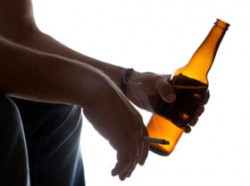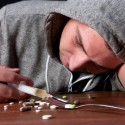Linwood Group Reveal Whether There is a Link Between Alcohol and Depression
Statistics prove the link between alcohol and depression reveal the Linwood Group. In the past, many in the medical profession have tended to view alcohol and depression as separate issues. However increasingly, research is showing that they are indeed strongly related to one another. In fact, after surveying over 14,000 people with early onset symptoms of both depression and alcohol dependence it was found that: ‘the relationship between depression and alcohol is quite strong, especially among women. When women experience symptoms of depression, they are at increased risk for alcohol dependence subsequently.’ This link is of increasing importance, given the fact that nearly twice as many women (12 percent) as men (7 percent) are affected by a depressive illness each year and that at some point during their lives, as many as 20 percent of women have at least one episode of depression that should be treated.
So is depression triggered by drinking alcohol, or do people turn to drinking once they begin to feel depressed? Sue Allchurch, director of Linwood Manor Group, explains further: ‘As is well documented, alcohol is a depressant and a person who chooses to drink to excess on a regular basis will be exposing themselves to the continued depressive effects of alcohol. However there are many factors that can trigger both alcohol dependence and depression, including how a person chooses to ‘self-medicate’ to cope with the stresses in their life, chemical imbalances in their body, the environment they live in and whether they have a family history of either alcoholism or depression.

Alcohol dependence is substance based addiction.
‘Whether the drinking began before the symptoms of depression, or a person began to drink to ‘get through the day’, the fact remains that people who regularly drink alcohol in order to cope with difficult situations or emotions find that this form of ‘self medication’ eventually leads to even more extreme situations and emotions. In fact, apart from affecting their mental health, consuming alcohol also affects a person’s memory and brain function and can be linked to increased anxiety levels and panic attacks and in severe cases with paranoia and mental confusion.’
Whether it is drinking alcohol or depression, the two are so inter-twined that it has been shown that the earlier in a person’s life that either of these two disorders develops, the greater the chance that the other will also arise. So, what are some of the symptoms of both to look out for? The Linwood Group has developed its Traffic Light System to provide a simple way of showing the symptoms of alcohol dependence. For depression, the Royal College of Psychiatrists recommends looking out for at least five or six of the following symptoms:
- feeling unhappy most of the time (but may feel a little better in the evenings)
- losing interest in life and can’t enjoy anything
- finding it harder to make decisions
- can’t cope with things that you used to
- feeling utterly tired
- feeling restless and agitated
- losing appetite and weight (some people find they do the reverse and put on weight)
- taking 1-2 hours to get off to sleep, and then wake up earlier than usual
- losing interest in sex
- losing self-confidence
- feeling useless, inadequate and hopeless
- avoiding other people
- feeling irritable
- feeling worse at a particular time each day, usually in the morning
- thinking of suicide.
Due to the close relationship between alcohol and depression, treatment centres such as Linwood are increasingly developing treatment programmes tailored to treating both depression and alcohol related abuses. Sue Allchurch continues: ‘We have found that typically, depression associated with alcohol problems resolves itself when the alcohol dependency ceases; giving those struggling with alcohol dependency even more reason to seek help and support.’
So, if you recognise any of the symptoms of alcohol dependence and depression in you or a family member, why not give a treatment centre such as Linwood Group a call to get free, confidential, professional advice on taking those first steps on the road to recovery? Freephone: 0800 066 4173 or if you are calling from a mobile phone or from overseas, call 01226 698 054?
Media Contact:
Linwood Group
Sue Allchurch
0800 066 4173
